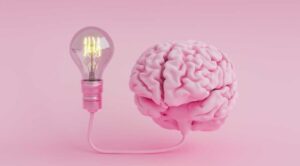If we were trying to fit memory into one place, we would probably need to use the whole body. Memory works continuously as a complex function of the brain and can be influenced by a variety of factors. Memory is a cognitive process by which experiences, knowledge and learning are stored and can be recalled over time. It is through the ability to remember, store and recall past experiences that people can maintain their ability to learn, solve problems and carry out daily activities. Memory consists of three stages, generally recognized as the three main components; encoding, storage and retrieval.
Encoding: Information from the outside world is converted into neural patterns that the brain can understand.
Storage: This is the stage where encoded information is stored in long-term memory.
Recall: Recalling stored information and making it available when needed.
Types of memory can also be classified in different ways:
Sensory Memory: This is the type of memory in which sensory information is stored for a short period of time. It includes visual information (images), auditory information (sounds) and other sensory inputs. It is stored for a very short time and then processed or forgotten.
Short Term Memory: This is a type of memory that is stored for a short time and has a limited capacity. It temporarily holds new information we learn at work. It is used during active thinking and problem solving.
Long Term Memory: This is the type of memory where information is stored for a long time. Learned information, experiences and skills are stored in this type of memory. Long-term memory is more permanent, but can be recalled with appropriate context or stimuli when it needs to be remembered.
The relationship of memory to neuromarketing involves the development of marketing strategies using neuroscientific methods to understand how people think, feel and behave. Memory is a key focus of neuromarketing because of how consumers remember brands, products and experiences, and how these recollections influence purchase decisions.
Experiences that stimulate multiple senses can help consumers remember information better. For example, by marketing a product to the sense of smell, consumers will remember the product for a long time. Repeating information and making it engagingly emotional or authentic can help information to be stored more firmly in long-term memory. People remember stories better. Neuromarketing can help consumers better internalize information by telling brand stories or product experiences. Again, emotional experiences can help people process and remember information more deeply. In particular, brands or experiences that are associated with positive emotions can stay in consumers’ minds longer.
Reference:
Psychologist Merve Altındağ
ADAYI, G. P., & GÜRCAN, E. E. N. NEURO PSYCHOLOGY.




